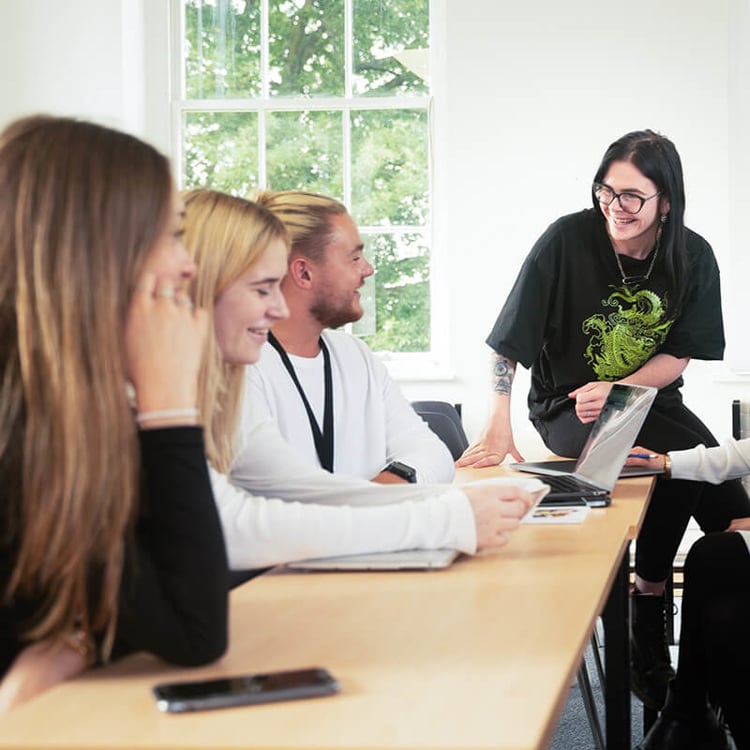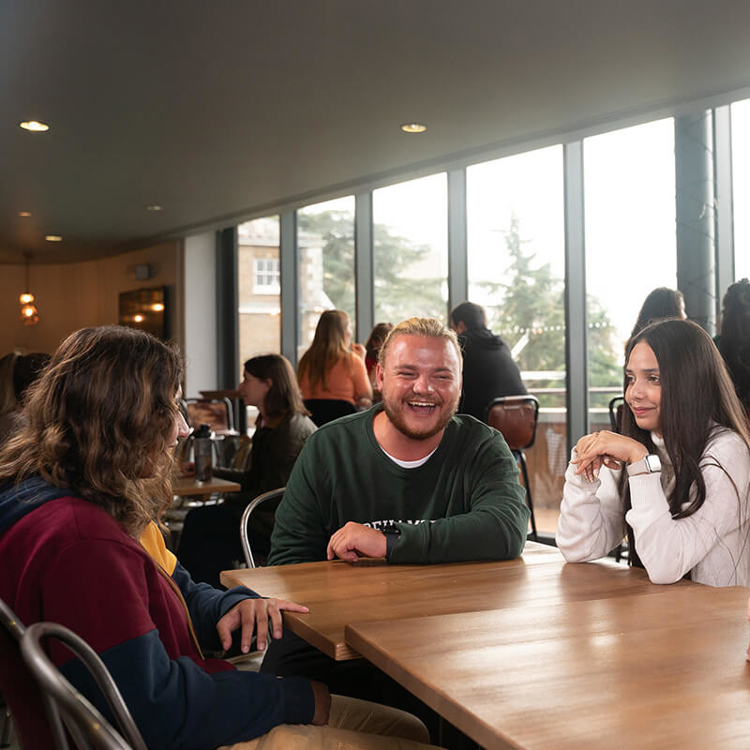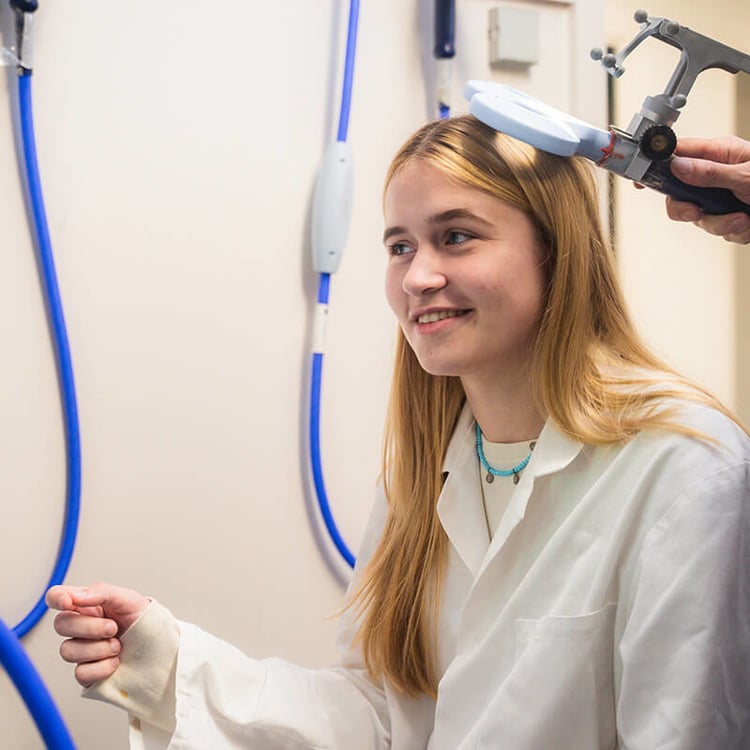Duration:
1 year (full-time)
2 years (part-time)
Please add an additional year if undertaking the Professional Experience Year: integrated 2-year masters
Number of credits:
MSc: 180 credits
PGDip: 120 credits
PGCert: 60 credits
Start date(s):
September 2025
January 2026
September 2026
Gain hands-on experience in our state-of-the-art research facilities on this highly practical Master’s, and understand the relationship between complex cognitive functions and their underlying brain mechanisms.
Did you know?
On our unique programme you'll be studying in our cognitive testing laboratory.
Learn to use magnetic resonance imaging (MRI), brain stimulation equipment, eye-tracking and EEG equipment.
Modules
Module details: This module provides a strong foundation in human brain structures and functions, focusing on the neuroanatomy of cognition. You will explore neural mechanisms underlying visual processing, attention, language, memory, emotions, cognitive control, and reward. Evidence from fMRI, ERPs, TMS, and neuropsychological case studies will support your learning. Additionally, you will study brain function at cellular and molecular levels. This module prepares you for further studies and careers requiring a deep understanding of brain structure and cognitive function.
How you’ll learn: This Autumn term module includes a combination of lectures, seminars, and asynchronous digital content to explore key concepts, applications, and case studies. Teaching is research-informed, and a dedicated career development week is included.
Assessment: This module will be assessed through a presentation, evaluating a research paper to develop critical thinking and communication skills, and an essay, assessing knowledge of brain functions while enhancing analytical and writing skills. Formative feedback will be provided through seminar tasks, essay plan reviews, and class discussions.
Module details: This module equips you with knowledge and skills in neuroscience techniques for researching and treating mental health disorders across the lifespan. You will explore non-invasive brain stimulation (TMS, tES), neuroimaging (EEG, MRI), and animal techniques, gaining both theoretical understanding and practical experience. Lectures cover the relevance of these methods, while seminars provide hands-on training and develop written communication skills. This comprehensive approach prepares you for diverse professional pathways in neuroscience, mental health research, and clinical applications.
How you’ll learn: This Autumn term module includes lectures on neuroscience techniques and grant proposal preparation, alongside seminars featuring lab demonstrations and student presentations. Additionally, asynchronous digital support provides videos on neuroscience techniques and quizzes to reinforce learning.
Assessment: This module will be assessed through an oral presentation on the advantages and disadvantages of neuroscience techniques in investigating mental health disorders and a poster presentation outlining a grant proposal using a neuroscience technique to address a research question related to a mental health disorder.
Module details: This module explores cognitive and biological development across the lifespan, from prenatal stages to childhood and adolescence. Topics include genetic and environmental influences, neurodevelopment, and resilience. You will examine key theories, methodologies, and neuroimaging techniques while considering applications in education, adulthood, and global contexts. This module equips you with essential theoretical and research-informed knowledge, fostering critical evaluation skills applicable to further studies and diverse professional settings.
How you’ll learn: This module includes virtual introductions to each week’s topic, campus lectures, seminars with assessment support, covering key theories, research, and practical applications through group discussions and debates about different perspectives or explanations. You will also engage with asynchronous digital materials each week, including pre-recorded instructions, video resources, and exercises.
Assessment: This module will be assessed through a study proposal and an infographic on a developmental topic.
Module details: This module covers key research methods essential for independent cognitive neuroscience research. You will study statistical techniques such as t-tests, ANOVA, regression, factor analysis, and Bayesian analysis, applying them to real research data. You will also analyse electrophysiological data (EEG) using software like SPSS, JASP, R, MATLAB, and FSL. Additionally, you will explore ethical considerations, research practices, and academic skills. Workshops provide assessment support and formative feedback, preparing you for future research and careers.
How you’ll learn: This Spring term module includes lectures and seminars each week. Additionally, there will be asynchronous digital support per week. You will learn how to design your own scientific research study and create and run statistical models. Outside-class activities such as a trip to visit the fMRI scanner and observe its operation (Career Development Week) and Assessment Support Week will be available to help ensure positive experiences and promote employability.
Assessment: This module will be assessed through a Scientific Report analysing and interpreting experimental data using cognitive neuroscience methods and software such as R, Python, or MATLAB, and a Poster Presentation presenting experimental EEG/ERP data. Formative assessment will include tasks performed during seminars, focusing on statistical analysis using R and related packages like JANOVI and JASP.
Module details: This module explores brain changes linked to mental health conditions, focusing on symptomatology, aetiology, and interventions. You will examine anxiety, mood disorders, schizophrenia, addiction, autism, and attention deficit hyperactivity disorder, alongside factors like stress and the immune system in brain health. The module covers neuroscience applications in treatments, including non-Western perspectives and emerging research. Through current studies and future directions, you will gain a comprehensive understanding of key mental health issues and approaches to improving brain function and well-being.
How you’ll learn: This Spring term module includes lectures and seminars each week, where lectures cover key information on the links between neuroscience and mental health, and seminars provide opportunities for discussion, research development, and formative feedback. Additionally, asynchronous digital support each week, including quizzes, blogs, videos, and discussion boards, will help consolidate learning.
Assessment: This module will be assessed through an engaging image-based presentation (Pecha Kucha), where students will create a presentation on a neuroscience topic related to mental health, as well as a leaflet synthesising and critically evaluating information on mental health treatment and interventions. Both assessments will demonstrate students' abilities to communicate complex information to non-academic audiences and apply their knowledge to real-world situations.
Module details: In this module, you will conduct and report an original research project under expert supervision in neuroscience and mental health. The lectures will cover project topics, ethical considerations, effective use of AI and research methods. This module enhances practical skills, including data analysis, ethical research practices, effective communication, and professional networking with relevant external organisations.
How you’ll learn: This Spring term module includes introductory lectures, supervision meetings, data collection, career development and assessment sessions, along with asynchronous digital support. You will learn the general research process through understanding foundational concepts, exploring current research, and gaining practical skills.
Assessment: This module will be assessed through a Research Report and an Oral Presentation.
These are the current planned modules on this course and may be subject to change.
Professional Experience Year
This course also offers the option of a Professional Experience Year. This programme combines dynamic career modules with flexible placement opportunities. After completing your first year of study, you'll then complete a full year of Professional Experience training as part of your degree. This will give you real career experience. This unique opportunity offers you distinct paths to build your expertise.
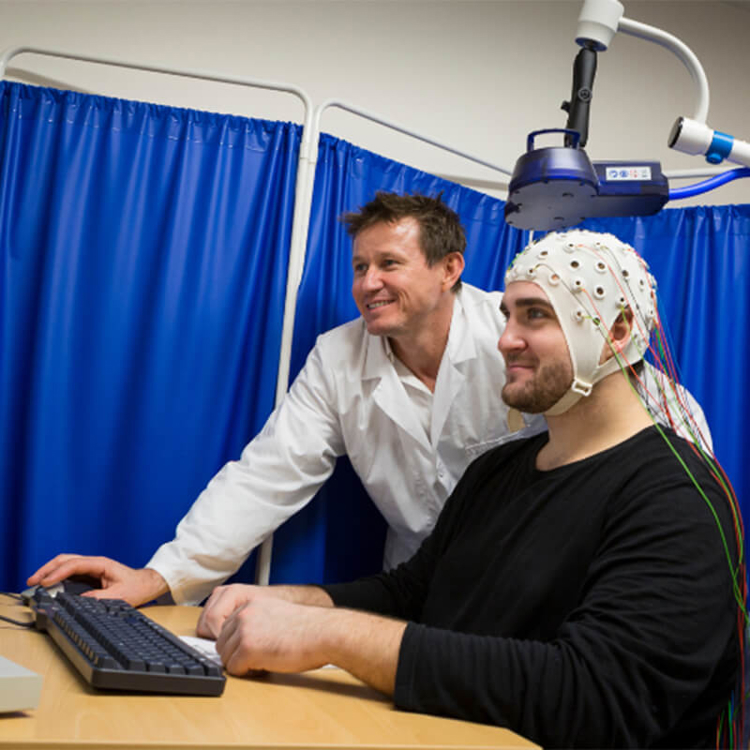
Skills
You'll explore the structure and function of the brain, examine the cognitive neuroscience of health and disease and how it relates to cognitive function, and learn the latest research techniques and methodologies. This includes:
- Hands-on research experience using cutting-edge tools like MRI, EEG, eye-tracking, brain stimulation (TMS, tDCS), and cognitive testing.
- Research methods and statistics, and through your dissertation complete an original research project to excel in the evolving field of cognitive neuroscience.
- Communication skills for post-graduation success, including manuscript construction and effective presentations
You'll graduate with an understanding of complex cognitive functions and their brain mechanisms in patients and healthy individuals, and the professional skills to excel in your career.
You’ll study a diverse range of topics and graduate with an advanced understanding of cognitive neuroscience. This includes:
- The structure and function of the brain and how to interpret research findings from neuroimaging and brain damage studies.
- The neural mechanisms of healthy brain functioning, decision-making, emotion, attention, memory and visual processing, as well as gaps in our current knowledge in these areas.
- How abnormal brain functioning can contribute to psychiatric symptoms and diagnoses, including depression, anxiety, schizophrenia and drug use and addiction, as well as how cognitive neuroscience techniques can contribute to their treatment.
Learning
The programme is delivered through taught lectures, methods workshops, seminars, discussion forums and online lectures.
It is designed to give you the maximum flexibility to fit the programme around your other commitments.
You will also spend a lot of your studies in our advanced research facilities. This includes Four dedicated Electroencephalogram (EEG) suites, access to a 3 Tesla Magnetic Resonance Imaging (MRI) scanners, Repetitive Trans Cranial Magnetic Stimulator (rTMS), static and head-mounted gaze-tracking equipment and advanced computer software.
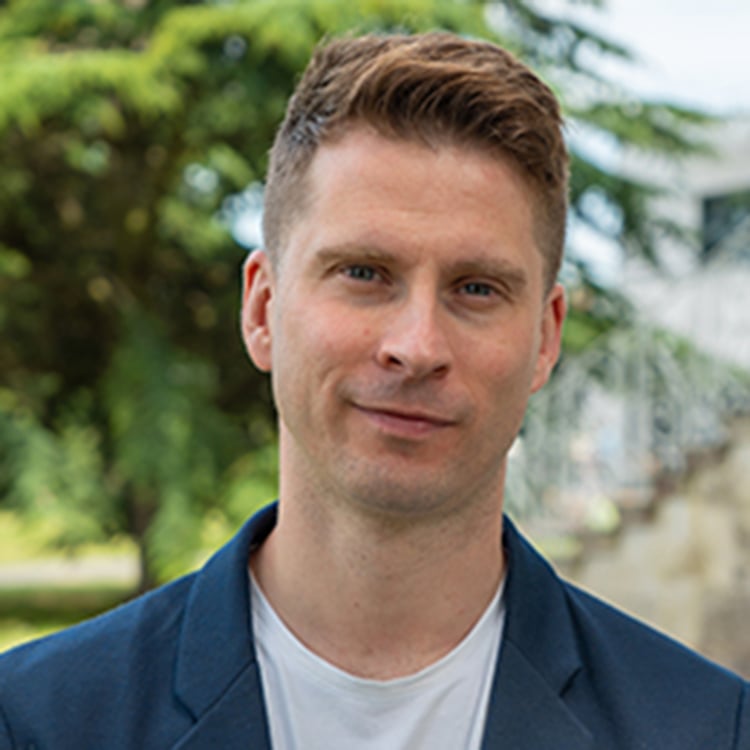
Dr Paul Faulkner
I am the programme convener for our MSc Applied Cognitive Neuroscience.
I obtained my BSc in Psychology from the University of Sheffield, my MSc in Neuroscience from King's College London, and my PhD in Cognitive Neuroscience from the Institute of Cognitive Neuroscience at University College London. I am a Chartered Psychologist with the BPS (CPsychol), where I am an Associate Fellow (AFBPsS) and an Associatte Member of the Faculty of Addictions.
As a cognitive neuroscientist, my research broadly aims to identify and alleviate cognitive difficulties thatt promote mood and substance use disorders. Via my links with industry and the NHS, I utilise cognitive neuroscience techniques such as brain imaging methods (functional and structural MRI, MRS, PET), brain stimulation techniques (tDCS) and computational methods to quantify and alleviate cognitive deficits such as difficulties in emotion regulation, maladaptive decison-making and hyperimpulsivity to improve wellbeing and aid cessation from drug use.
I also aim to bring together research from two opposite ends of the Psychology spectrum (cognitive neuroscience and counselling) by augmenting traditional behavioural therapies with brain stimulation techniques to imrpove the efficacy of therapeutic interventions. So far my research been funded by the Medical Research Council, British Academy and National Institute of Health in the U.S (National Institute of Drug Addiction).
If you have any questions, or would like to get in touch regarding research opportunities, please email me at paul.faulkner@roehampton.ac.uk.
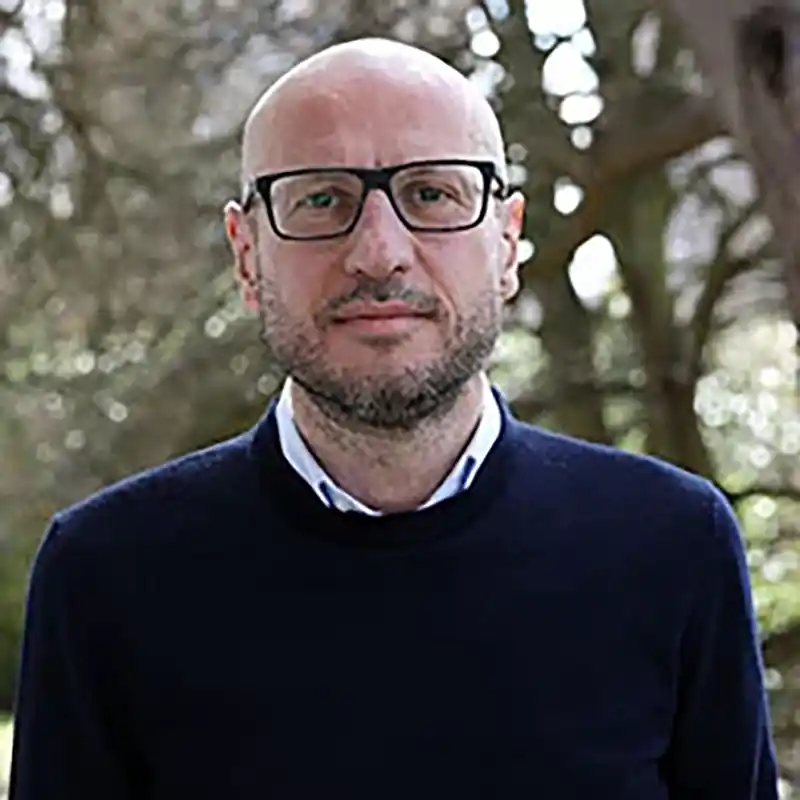
Dr Marco Sandrini
Hi, I am Marco! I have been at Roehampton since 2015. I graduated in Experimental Psychology at the University of Padua (Italy). I then obtained a PhD in Neuroscience at the University of Verona (Italy) and undertook a two-year post-doctoral fellowship at the Centre for Mind/Brain Sciences (University of Trento, Italy) and spent five-years as a research fellow at the National Institutes of Health (USA), the largest biomedical research agency in the world.
The focus of my research is interventions to enhance memory in aging and reduce the frequency of intrusive memories of trauma using the combination of neuroimaging and non-invasive brain stimulation.
I am primarily involved in the teaching of research methods and statistics and cognitive neuroscience. I am the module convenor for the second year undergraduate module “Psychological Research: Design, Analysis and Impact” and “Use of Cognitive Neuroscience Techniques” for the master in Applied Cognitive Neuroscience
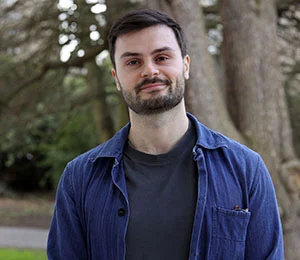
Dr Chris Brown
Since joining Roehampton in 2020, I have taught on a range of modules on our BSc Psychology course, as well as our MSc Psychology (Conversion) and MSc Applied Cognitive Neuroscience programmes. These have been modules focused predominantly on cognitive neuropsychology and research methods. I also supervise a range of student research projects using different methods, including cognitive measures of behaviour in the lab, neuropsychological measures such as EEG and MRI, and the development of novel self-report questionnaires. My research explores how attention is influenced by our current goals, and how this can explain patterns of behaviour seen in conditions such as anxiety and addiction.
Career
There are several career pathways this MSc can lead to.
The solid understanding of applied cognitive neuroscience principles and techniques, and the experience in research, will equip you with the skills and knowledge for a career in cognitive neuroscience research, whether in academia or industry.
You'll be equiped to succeed in a wide range of graduate careers, particularly those which require experience in data analysis, scientific and non-scientific communication skills, and skills in writing/publications, including finance, business, medicine, marketing and more.
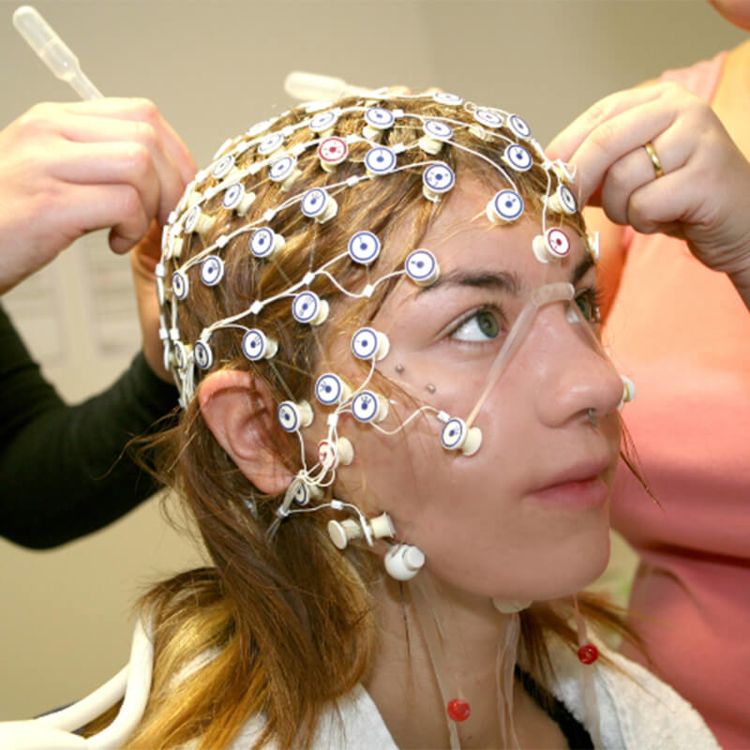
Open days
Get a real taste of our campus, community and what it’s like to study at Roehampton
Applying
UK postgraduate students apply through our direct application system.
Course subject to curriculum enhancement and revalidation.
Specific entry requirements
Applicants are required to hold a second class honours degree in Psychology, Neuroscience, Biology, Life Sciences, Information Technology or a related subject.
General entry requirements
September 2025 entry tuition fees (UK)
| Level of study | Full-time | Part-time* |
| MSc | £11,250 | £5,625 |
*Year 1 fee
We offer a wide range of scholarships and bursaries. See our financial support pages for UK students.
We also provide other ways to support the cost of living, including free buses and on-campus car parking, hardship support and some of the most affordable student accommodation and catering in London. Find out more about how we can support you.
International postgraduate students apply through our direct application system.
Course subject to curriculum enhancement and revalidation.
Specific entry requirements
Applicants are required to hold a second class honours degree in Psychology, Neuroscience, Biology, Life Sciences, Information Technology or a related subject.
General entry requirements
September 2025 entry tuition fees (international)
| Level of study | Full-time | Part-time* |
| MSc | £18,250 | £9,125 |
*Year 1 fee
We offer a wide range of scholarships and bursaries. See our financial support pages for international students.
We also provide other ways to support the cost of living, including free buses and on-campus car parking, hardship support and some of the most affordable student accommodation and catering in London. Find out more about how we can support you.




